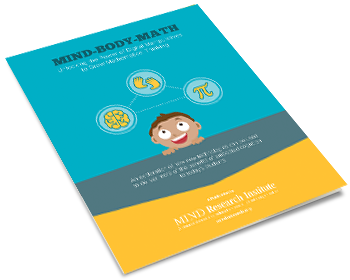Unlocking the Power of Digital Manipulatives to
Grow Mathematical Thinking
 The body helps the mind learn.
The body helps the mind learn.
Research on math education -- and education more broadly -- has verified again and again that the physical actions of learners influence how they think, and vice versa.
A new peer-reviewed article written by MIND Research Institute’s pyschologist Martin Buschkuehl, mathematician Brandon Smith, and education researcher Cathy Tran has taken a close look at much of that research and unpacked the relationship between embodied cognition and learning that has been evolving for decades.
Their article – and the material in this brief ebook toolkit – explores some of the ways new technologies can be used to deliver more of the benefits of embodied cognition to students who are growing their mathematical thinking.
This toolkit has been purposely prepared to help educators:
- Incorporate digital manipulatives in the classroom
- Design and deliver embodied learning activities, and
- Assess the learning results of such activities
Complete the form to receive your free toolkit.
Share this toolkit:

